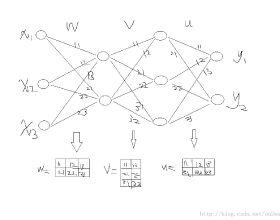"Forward-only" algorithms, which train neural networks while avoiding a backward pass, have recently gained attention as a way of solving the biologically unrealistic aspects of backpropagation. Here, we first discuss the similarities between two "forward-only" algorithms, the Forward-Forward and PEPITA frameworks, and demonstrate that PEPITA is equivalent to a Forward-Forward with top-down feedback connections. Then, we focus on PEPITA to address compelling challenges related to the "forward-only" rules, which include providing an analytical understanding of their dynamics and reducing the gap between their performance and that of backpropagation. We propose a theoretical analysis of the dynamics of PEPITA. In particular, we show that PEPITA is well-approximated by an "adaptive-feedback-alignment" algorithm and we analytically track its performance during learning in a prototype high-dimensional setting. Finally, we develop a strategy to apply the weight mirroring algorithm on "forward-only" algorithms with top-down feedback and we show how it impacts PEPITA's accuracy and convergence rate.
翻译:“ 前向” 算法, 既训练神经网络,又避免后向传球, 近来作为一种解决后向传动的生物不切实际方面的方法而引起注意。 在这里, 我们首先讨论两种“ 前向” 算法、 前向和 PEPITA 框架之间的相似性, 并证明PEPITA 等同于前向- 前向和上向反馈连接。 然后, 我们关注PEPITA, 以解决与“ 前向” 规则有关的紧迫挑战, 其中包括提供对其动态的分析理解, 并缩小其性能与反向反向反向作用之间的差距。 我们提议对 PEPEPITA 的动态进行理论分析。 特别是, 我们显示 PEPITA 算法与“ 前向- 后向- 反馈” 相近, 我们分析其在原型高维度设置的学习期间的表现。 最后, 我们制定策略, 将重反射算法应用“ 前向” 和上向反馈的算法, 我们展示它如何影响 PEPEPITA 的准确性和趋同率。



